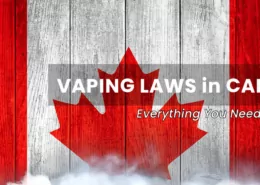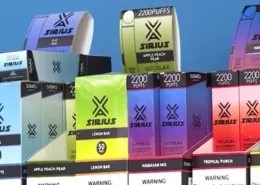Mexico Plans to Set Vape Ban in the Country’s Constitution
President Claudia Sheinbaum of Mexico has announced plans to enshrine a vape ban in the country’s constitution by the end of 2024. The president’s left-leaning Morena party secured a supermajority in the lower house of Congress in the June election, giving her government significant power to implement its agenda.
Mexico has already taken a hostile stance towards vapes, with existing bans on sales, marketing, production, transportation, and importation. However, some vape shops continue to operate legally due to court rulings in their favor, while a thriving gray market exists with minimal enforcement. The proposed constitutional amendment aims to eliminate this ambiguity.
Advocates for tobacco harm reduction argue that the ban will have unintended consequences. Of the estimated 1.7 million Mexicans who vape, many use the devices as a less harmful alternative to cigarettes. With around 12 million smokers in Mexico and nearly 50,000 smoking-related deaths each year, vapes have played a role in reducing smoking rates.
Mexico faces significant public health challenges:
1.7 million current vapers
12 million active smokers
50,000 annual smoking-related deaths
Tomás O’Gorman, a Mexican lawyer and co-founder of Pro-Vapeo Mexico, and Miguel Garcia, a tobacco harm reduction advocate in Mexico City, believe that the constitutional ban will drive many vapers back to combustible cigarettes, ultimately increasing health problems among the population.
Read more:
Supreme Court Mexico Allows Vape Imports
Beyond the public health concerns, there are widespread fears that a completely illicit vape market will fuel violence in Mexico, a country already grappling with devastating levels of violence related to the banned drugs market. O’Gorman predicts that heavier enforcement against vapes will lead to a range of negative outcomes, including the growth and strengthening of the illicit market, empowering established trafficking groups and fostering violence.
The constitutional ban raises serious security concerns:
- Potential emergence of violent black markets
- Increased involvement of organized crime
- Parallels to Australia’s experience with illegal vape trade
Calls for Regulation and Education
Critics of the proposed ban argue that it violates personal autonomy and human rights, such as the right to health, information, and freedom of choice. Garcia calls for investment in education and information programs to help Mexicans make informed decisions about nicotine products, rather than resorting to prohibition.
O’Gorman and Garcia advocate for a regulatory approach that facilitates access to harm reduction devices, allowing Mexicans to consume nicotine without resorting to smoking cigarettes, ultimately improving public health outcomes.
- Russia’s Vape Market: Inside the Battle for Control - August 8, 2025
- Brazil: Paraná Bill to Add Vaping to “No Smoking” Signs - August 8, 2025
- Celebrate with EightVape: 10 Lucky Winners Get Free Orders or $100 Gift Cards - August 8, 2025









